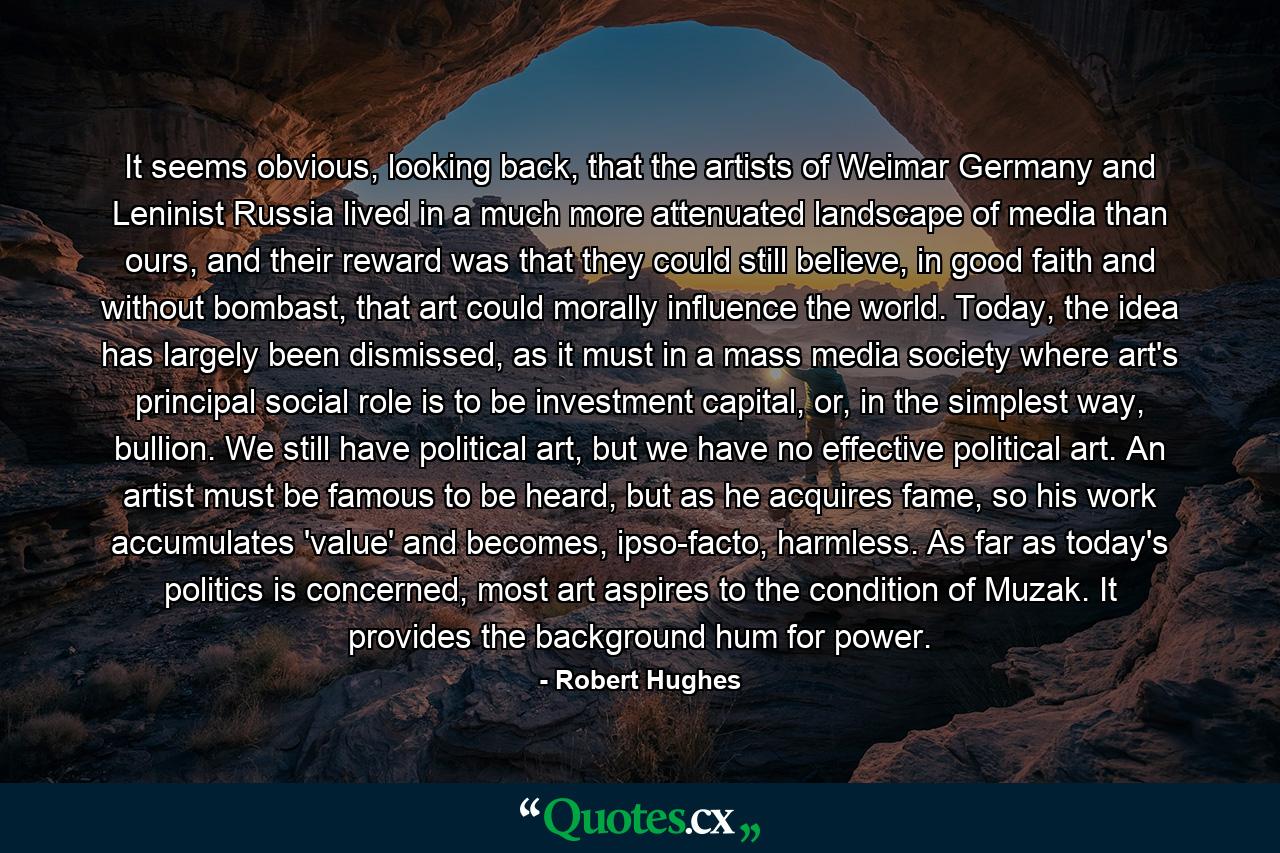It seems obvious, looking back, that the artists of Weimar Germany and Leninist Russia lived in a much more attenuated landscape of media than ours, and their reward was that they could still believe, in good faith and without bombast, that art could morally influence the world. Today, the idea has largely been dismissed, as it must in a mass media society where art’s principal social role is to be investment capital, or, in the simplest way, bullion. We still have political art, but we have no effective political art. An artist must be famous to be heard, but as he acquires fame, so his work accumulates ‘value’ and becomes, ipso-facto, harmless. As far as today’s politics is concerned, most art aspires to the condition of Muzak. It provides the background hum for power.
